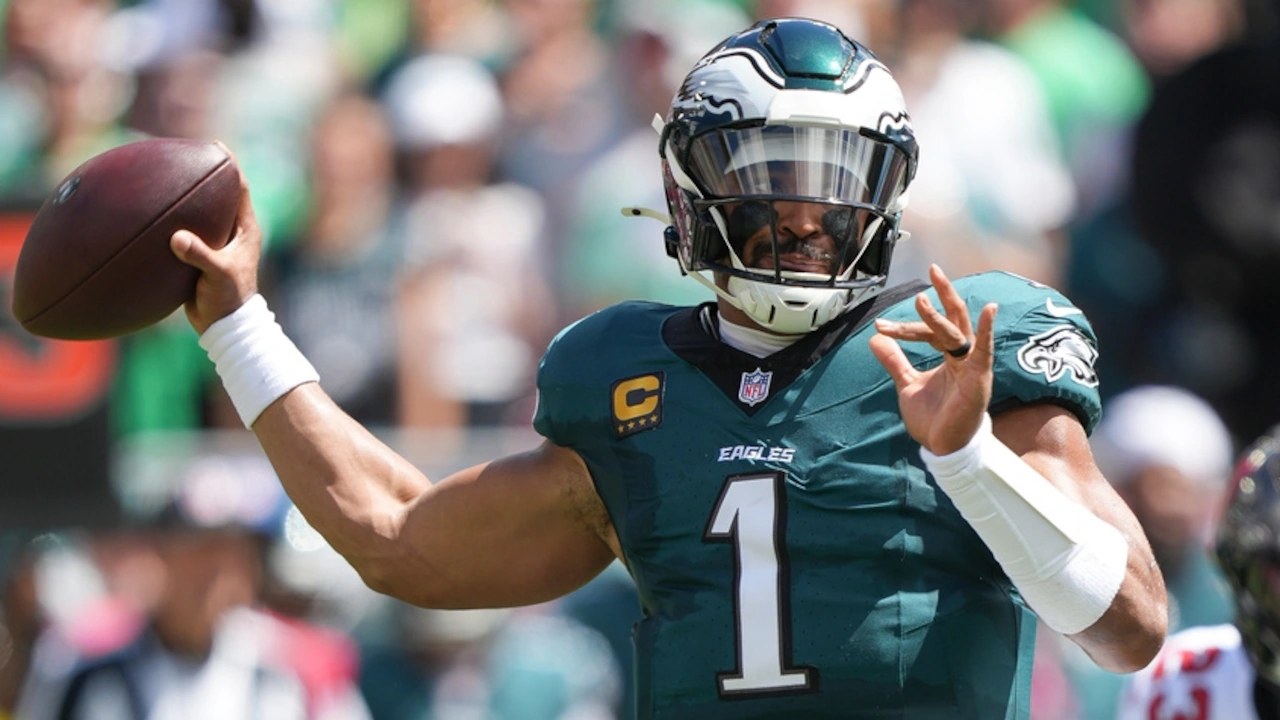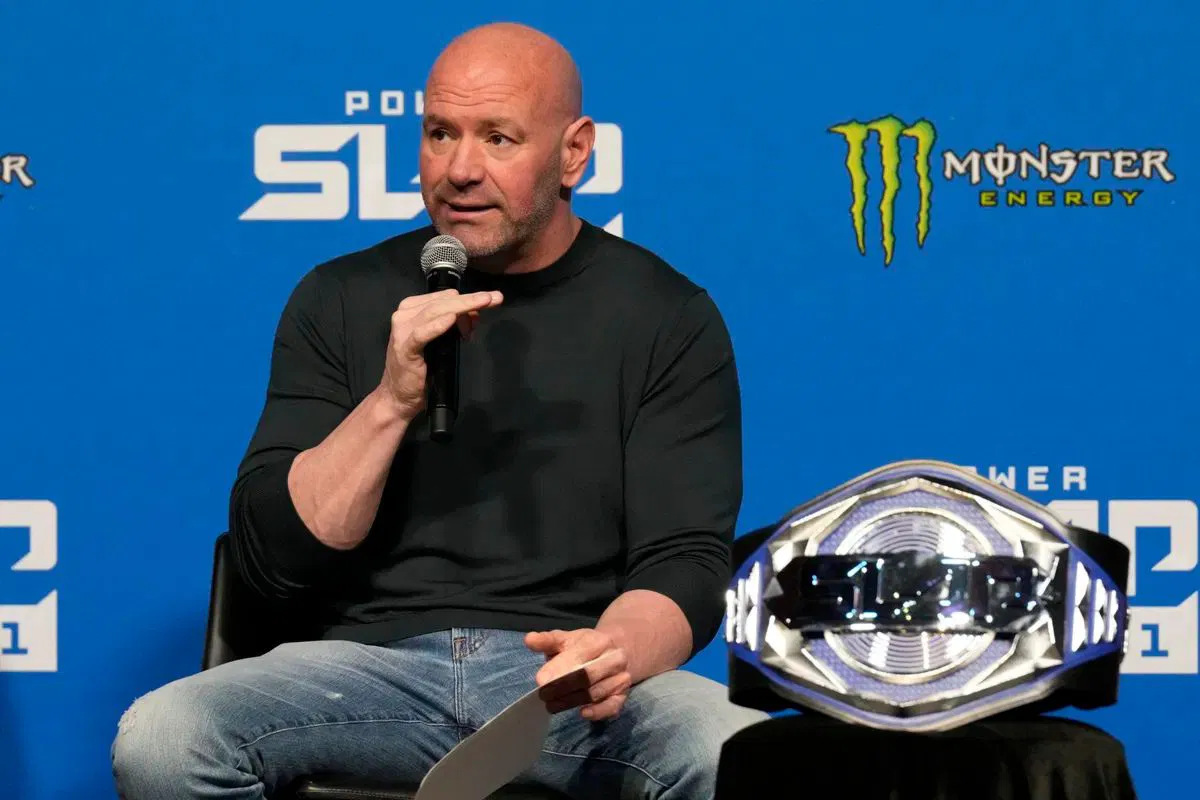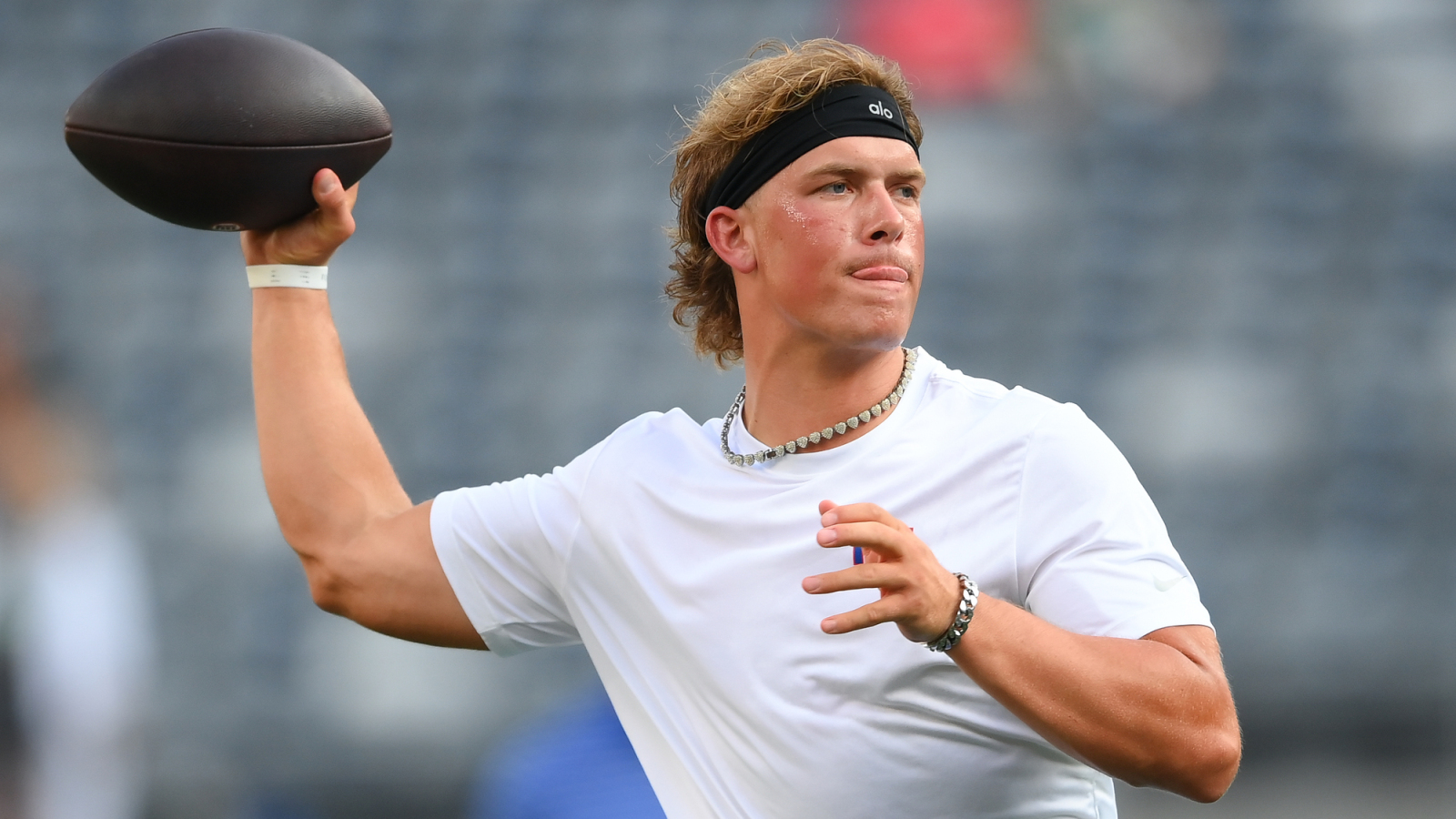‘It’s not just two people’: How Jalen Hurts is shutting down individual drama in Philadelphia

CLEVELAND, Ohio — In an era of sports media that thrives on individual narratives and personal conflicts, Philadelphia Eagles quarterback Jalen Hurts is drawing a firm line.
Amid questions about his connection with star receiver A.J. Brown and potential frustrations in the offense, Hurts has been consistently redirecting the conversation to what he calls “the collective thing.”
When directly asked about his chemistry with Brown, Hurts immediately broadened the scope.
“I think again um you know looking at it from a macro perspective, it’s a collective thing. I think it’s not just two people, it’s a collective thing,” Hurts said.
This wasn’t a one-off response, but rather a deliberate communication strategy that Hurts maintained throughout his media availability.
While reporters pressed for details about individual relationships and potential frustrations among his star receivers, Hurts repeatedly emphasized the interconnected nature of offensive football.
“It’s about the offense generating and being what we believe it can be,” Hurts continued. “And what we’ve shown it can be. And so that’s every aspect of our game. That’s our efficiency in the run game. That’s our efficiency in the pass game. That’s that’s our efficiency in pass protection. That’s that’s every element.”
His approach to leadership becomes even clearer when considering how he handles frustrated players. When asked directly about managing player frustrations, Hurts offered a remarkably succinct philosophy.
“You just got to focus and keep the main thing the main thing,” Hurts said.
This “main thing” appears to be the collective success of the offense rather than individual statistics or targets.
It’s an approach that stands in stark contrast to the fantasy football mindset that often dominates discussions of NFL offenses, where individual production is the primary measure of success.
Hurts further illuminated his philosophy when explaining what he calls “team offense.” It’s a concept that hinges on collective responsibility and interdependence.
“When you desire to play team offense, you got to understand that everyone has an impact on every lasting every lasting play,” Hurts said.
This viewpoint represents a sophisticated understanding of offensive football that goes beyond simple pitch-and-catch dynamics.
In Hurts’ framework, every player’s route, block, or decoy action impacts the entire offense’s success – making it impossible to reduce struggles to just a quarterback-receiver connection.
The Eagles quarterback’s consistent message serves multiple purposes.
It protects individual players from excessive criticism, maintains team cohesion amid struggles, and keeps the focus on systemic improvements rather than personal adjustments.
For a Philadelphia team loaded with star talent but still finding its offensive rhythm, this collective approach could be exactly what’s needed to prevent the formation of factions or the development of internal finger-pointing.
As the Eagles work to find greater consistency, Hurts’ leadership style offers a blueprint for how to navigate the delicate balance of managing individual stars within a team context.
By steadfastly refusing to engage with narratives that pit players against each other, he’s creating space for the offense to solve problems collectively.



